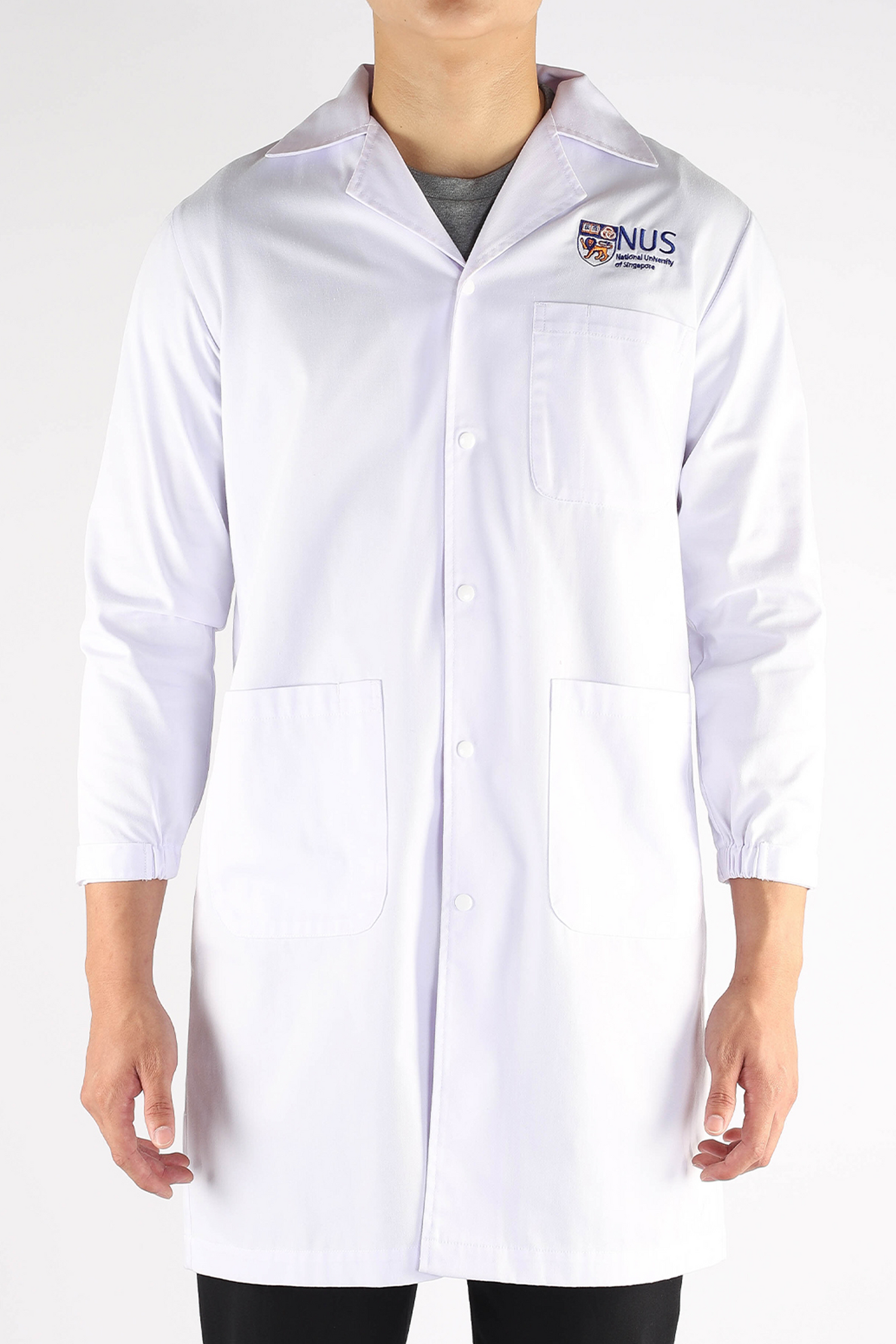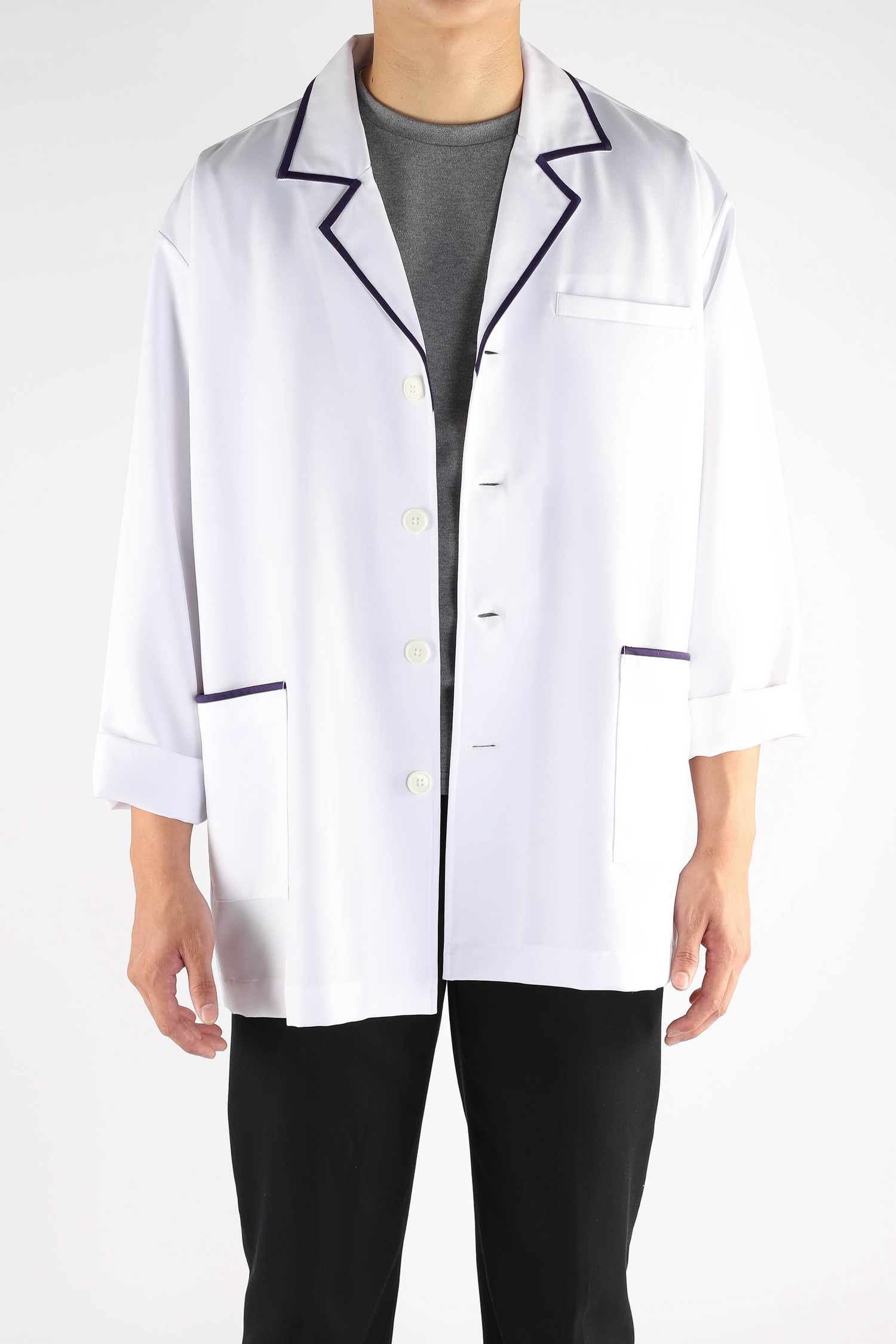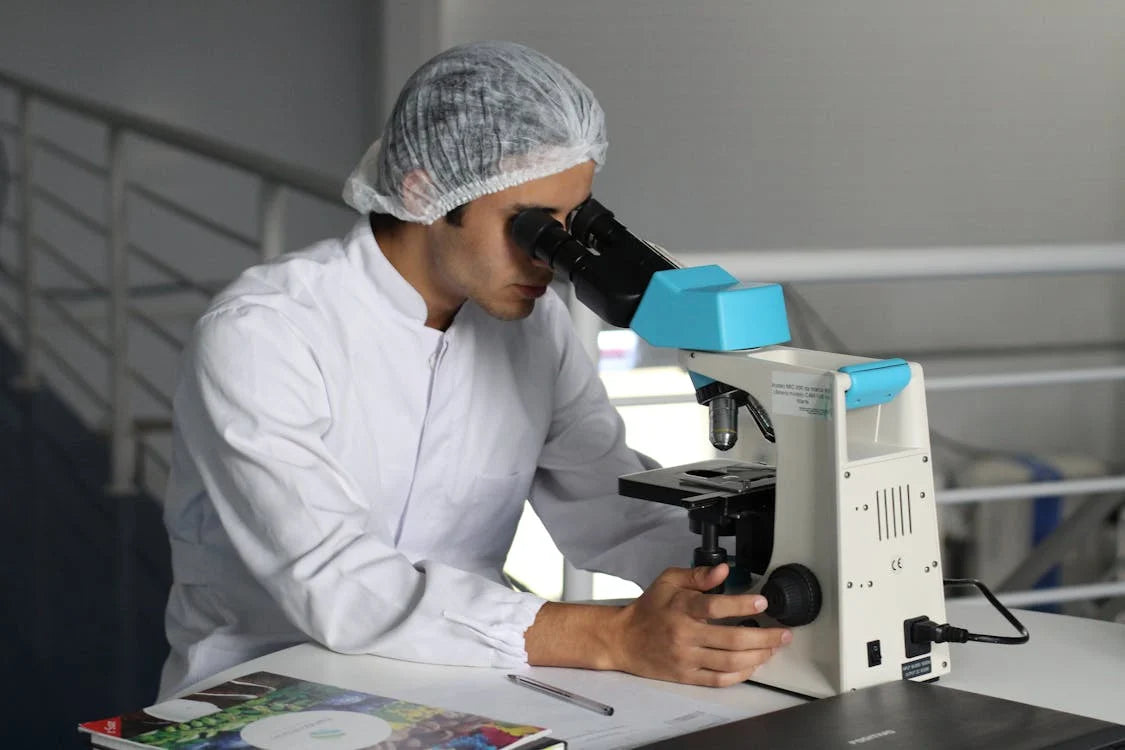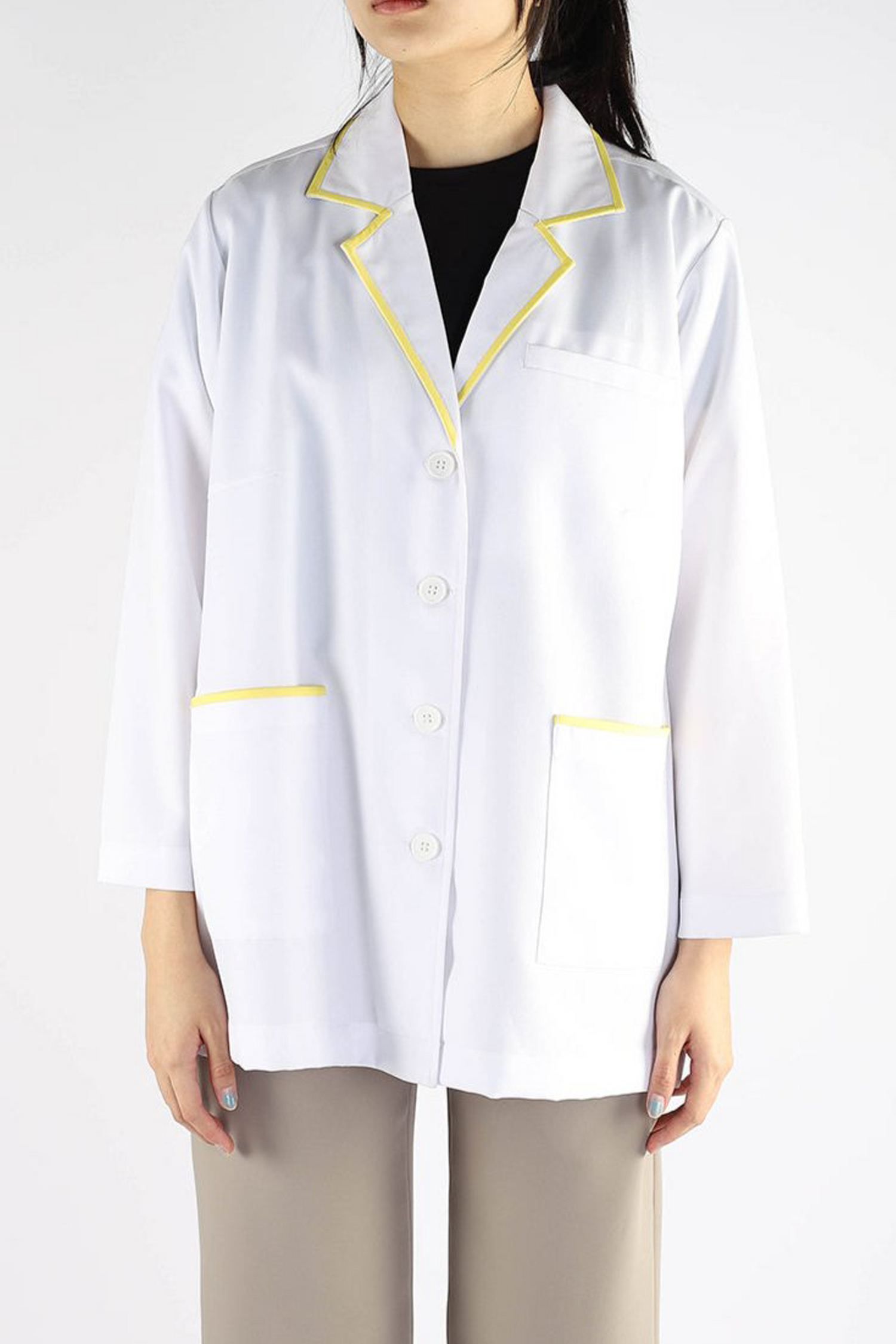Protective Unisex Lab Coat
Safety lab coats are worn in industry sectors that need to protect staff from spillages, stains, or chemical splashes and bacteria.
We have lab coats treated with special coating that are stain and chemical resistant, and safety lab coats that offer protection against electromagnetic interference and electrostatic discharge.
-
Long Lab Coat
Regular price $0.00 SGDRegular priceUnit price per -
Short Lab Coat
Regular price $0.00 SGDRegular priceUnit price per -
Fire Retardant Lab Coat
Regular price $0.00 SGDRegular priceUnit price per$0.00 SGDSale price $0.00 SGD -
Smart Safety Lab Coat
Regular price $0.00 SGDRegular priceUnit price per$0.00 SGDSale price $0.00 SGD -
Stain Resistant Lab Coat
Regular price $0.00 SGDRegular priceUnit price per$0.00 SGDSale price $0.00 SGD

Importance of Laboratory Coat
In laboratories and other scientific settings, safety is paramount. The lab coat serves as an essential piece of personal protective equipment (PPE), acting as a barrier between the wearer and potential hazards. It shields the wearer from accidental exposure to hazardous materials, chemicals and biological agents, preserving both personal safety and the integrity of the work environment.
Beyond its protective function, the lab coat also projects an image of professionalism and competence. It distinguishes laboratory personnel from others and reinforces the importance of maintaining a controlled and hygienic workspace.

Guide to Choose the Right Lab Coat
Selecting the appropriate lab coat is crucial for ensuring optimal safety and comfort in the laboratory. Consider these key product features:
- Tight Cuffs: Knitted or elastic cuffs create a snug fit around the wrists, preventing contaminants from entering the sleeves.
- Snap Closures: Snap closures on the front allow for quick and easy removal in case of contamination or emergency.
- Distinctive Features: Coats with specific properties, like flame-resistant (FR) coats, should be easily distinguishable from standard lab coats through colour or design elements.
- Proper Fit: A well-fitting lab coat should provide ample coverage without hindering movement or creating trip hazards.
- Appropriate Material: Choose materials that are resistant to the specific hazards encountered in your laboratory, such as chemicals, flames, or biological agents. Common materials include cotton, polyester blends, and specialised fabrics with protective coatings.
It is important to recognise that one coat may not suffice for all lab operations. Assess the potential risks in your laboratory and select lab coats with the appropriate features and materials to ensure optimal safety and protection.

Professions That Require Lab Coats
- Scientists: Scientists across various disciplines rely on lab coats for protection and maintaining a sterile environment while conducting experiments and research.
- Laboratory Technicians: Lab technicians handle various chemicals and specimens, making lab coats essential for their safety and hygiene.
- Medical Professionals: On top of medical scrubs, doctors, nurses and other healthcare workers also often wear lab coats during procedures or when handling potentially infectious materials.
- Pharmacists: Pharmacists may wear lab coats when compounding medications or working in sterile environments.
- Engineers: Engineers working in laboratories or research and development settings may require lab coats for protection and professional appearance.

Why Order Lab Coats from Us?
CYC Corporate Label is your trusted source for high-quality lab coats. Our commitment to quality guarantee lab coats that meet the highest standards of protection and comfort.
Personalised Design
Our design team will work with you to incorporate your company logo or other branding elements into your lab coats, creating a cohesive and professional look.
Premium Craftsmanship
Each CYC lab coat is meticulously crafted with attention to detail, ensuring durability, functionality and a comfortable fit.
High-quality Fabrics
We source only the finest fabrics, carefully selected for their resistance to stains, chemicals and other hazards. Our lab coats are built to withstand the rigours of the laboratory environment.
Frequently Asked Questions About Laboratory Coats
What is the difference between a lab coat and a medical coat?
While both lab coats and medical coats serve protective functions, medical coats are typically shorter and designed for use in clinical settings, whereas lab coats offer more comprehensive coverage and are suitable for a wider range of laboratory environments.
What is the difference between a lab coat and a lab jacket?
The terms "lab coat" and "lab jacket" are often used interchangeably. However, some may consider a lab jacket to be a shorter, less formal version of a lab coat.
What are the rules and guidelines for lab coats?
Lab coat guidelines vary depending on the specific laboratory and its associated hazards. However, common rules include wearing the coat buttoned-up, keeping it clean and free of contaminants, and removing it before leaving the laboratory.
Where is it inappropriate to wear your lab coat?
It is generally considered inappropriate to wear your lab coat outside of the laboratory, especially in public areas like cafeterias or restrooms. This helps prevent the spread of contaminants and maintains a professional image.
Why must lab coats be white?
Traditionally, lab coats have been white to symbolise cleanliness and sterility. White also makes it easier to identify stains and contaminants.
Can lab coats be any colour?
While white remains a popular choice, lab coats are now available in various colours. Some laboratories may have specific colour codes to designate different roles or departments.
What colour of lab coats is best for doctors?
White is the most common colour for doctors' lab coats, although some may prefer other colours depending on their speciality or personal preference.
What kind of lab coat should I get?
The type of lab coat you need depends on the specific hazards you encounter in your laboratory. Consider factors like chemical resistance, flame resistance and the need for specialised features like snap closures or tight cuffs.
Should I iron my lab coat?
Ironing your lab coat can help maintain its professional appearance and remove wrinkles. However, be sure to follow the care instructions for the specific fabric to avoid damage.
Should lab coats be washed?
Yes, lab coats should be washed regularly to remove contaminants and maintain hygiene. Follow the care instructions on the label for proper laundering.
When should I replace my lab coat?
Replace your lab coat when it becomes damaged, stained, or no longer provides adequate protection.
What is the minimum order quantity (MOQ) for laboratory coats?
The minimum order quantity for laboratory coats is 50 pieces per design.
Related Products and Accessories for Lab Coats
Enhance your laboratory attire with our range of related products and accessories, including corporate shirts, adaptive wear for enhanced comfort, professional blouses and dresses, comfortable pyjamas and medical scrubs for healthcare settings.





